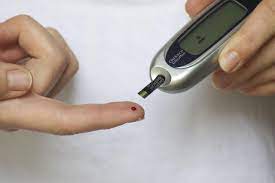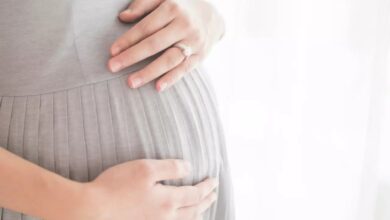How to stop hair loss when expecting
How to prevent hair loss during pregnancy is a lovely and changing journey in a woman’s life that is characterized by several physical and emotional changes. Hair loss is one of the frequent issues that many women have at this time. Even while some hair loss is natural, knowing the reasons and using the right techniques may help make it less noticeable. In this post, we’ll examine the factors that contribute to hair loss during pregnancy and provide doable solutions for controlling and preventing severe hair loss.
Understanding Pregnancy-Related Hair Loss
Telogen effluvium, often known as hair loss, is a normal occurrence that may be brought on by a number of variables, including as hormone changes, genetics, and way of life decisions. Hormonal changes during pregnancy have a big impact on hair health. Typically, a portion of hair is in the telogen phase, also known as the resting phase, while the remainder is actively developing. During pregnancy, hormonal changes, especially an increase in estrogen levels, may extend the growth phase and produce thicker, healthier-looking hair. However, hormone levels substantially change after giving birth, leading a greater proportion of hair to enter the resting phase and eventually shed. This procedure may cause considerable hair loss, which typically starts three to six months after delivery.
How to Control Hair Loss While Pregnant
Maintain a Balanced Diet: While pregnant, it’s important to eat a healthy, varied diet. Protein, vitamins, and minerals should all be consumed in moderation for healthy hair. To encourage hair development and reduce hair loss, consume foods high in biotin (eggs, almonds, seeds), vitamin E (leafy greens, avocados), and iron (lean meats, legumes).
Keep Hydrated: Drinking plenty of water keeps the body hydrated, which is good for the health of your hair. In order to promote development and lessen hair loss, hydration aids in the delivery of crucial nutrients to hair follicles.
delicate Hair Care: Use delicate techniques on your hair to avoid placing undue strain on the follicles. Choose gentle shampoo and conditioner for your particular hair type. Avoid pulling on the hair by rubbing too much, combing too hard, or wearing tight hairstyles.
Regular Scalp Massage: Gently massaging the scalp may increase blood circulation and help the hair follicles get more nutrition. Before washing your hair, massage your scalp using circular movements for a few minutes using natural oils like coconut, almond, or argan oil.
Avoid Heat Styling: Hair is more susceptible to heat damage when pregnant. Reduce your usage of hair dryers, straighteners, and curling irons to protect your hair from thinning and breaking.
Manage Stress: Being pregnant may be stressful, and stress is linked to hair loss. To properly manage stress, use relaxation methods like meditation, deep breathing, and prenatal yoga.
Prenatal vitamins, which include vital nutrients like folic acid, biotin, and iron, should be taken under the advice of your healthcare professional. These vitamins may promote general health and help with hair health.
Consult a Healthcare Professional: To rule out any underlying medical disorders that may be causing the problem, speak with your doctor if you discover that your hair is falling out excessively while you are pregnant. They may provide tailored guidance depending on your circumstances.
How to stop postpartum hair loss
As previously discussed, hormonal changes during pregnancy and lactation can result in postpartum hair loss. Although it cannot totally be avoided, there are things you may do to lessen its effects:
Just wait: Recognize that postpartum hair loss is normal and a transient component of the cycle. The pattern of hair growth will eventually revert to normal as hormone levels settle.
Maintain a Healthy Lifestyle: Even after giving birth, continue to maintain a balanced diet, drink enough of water, and control your stress. These routines will benefit your general health, which includes the condition of your hair.
Keep Hair Shorter: By choosing a shorter haircut, you may give the impression that your hair is thicker, which can hide any postpartum hair loss.
Use Volumizing Products: To make your hair seem fuller, think about using volumizing shampoos, conditioners, and style products.
Avoid Tight Hairstyles: Because your hair is more delicate after giving birth, stay away from tight hairstyles that might strain on it and cause additional hair to come out.
Understanding the root causes of hair loss during pregnancy and putting the right tactics in place may help control and reduce the problem. Hair loss during pregnancy is a frequent worry (how to avoid hair fall during pregnancy). You can promote the health of your hair during your pregnancy by eating a balanced diet, drinking enough of water, using gentle hair care techniques, and reducing stress. Keeping in mind that postpartum hair loss is just temporary, your hair will eventually resume its regular growth pattern as you take care of your general wellbeing. Consult your healthcare practitioner for tailored advice if you have any questions.







